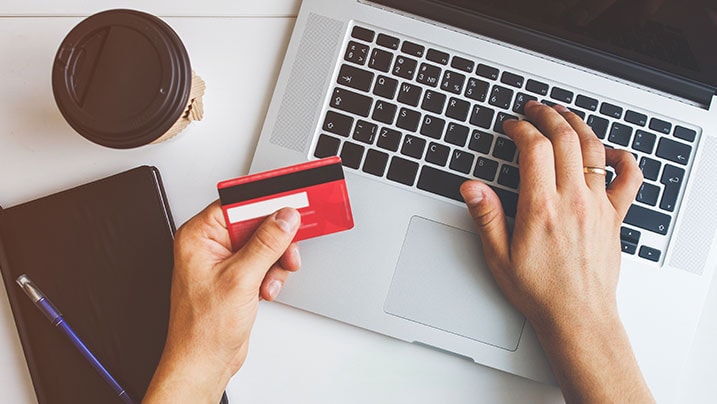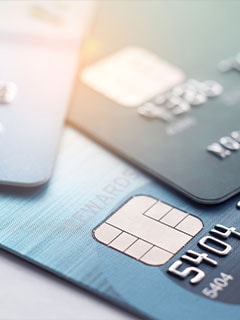CKYC Registry
-
Customer Service Contact us Service request Locate a branch
Find all the help you need
Scan the QR, get our app, and find help on your fingertips

Help CenterSupport topics, Contact us, FAQs and more
-
Login
Are you ready for an upgrade?
Login to the new experience with best features and services
-
Login
Are you ready for an upgrade?
Login to the new experience with best features and services
- Accounts
-
Deposits
IDFC FIRST Bank Deposits
View all Deposits -
Loans
IDFC FIRST Bank Loans
View all Loans - Wealth & Insure
-
Payments
IDFC FIRST Bank Payments
View all Payments -
Cards
IDFC FIRST Bank Cards
View all Cards - Blogs
- Corporate Account
-
Cash Management Services
IDFC FIRST Bank Cash Management Services
View all Cash Management Services - Supply Chain Finance
-
Corporate Lending
IDFC FIRST Bank Lending
View all -
Treasury
IDFC FIRST Bank Treasury
See more details - NBFC Financing
Support topics, Contact us, FAQs and more
- IDFC FIRST Bank Accounts
-
Savings Account
-
Corporate Salary
Account -
Senior Citizens
Savings Account -
First Power
Account -
Current Account
-
NRI Savings
Account -
TASC Institutional
Account -
Savings Account
Interest Calculator
- IDFC FIRST Bank Deposits
-
Fixed Deposit
-
Recurring Deposit
-
NRI Fixed Deposit
-
Safe Deposit Locker
-
FD Calculator
-
RD Calculator
- IDFC FIRST Bank Loans
-
Personal Loan
-
Consumer Durable
Loan -
Home Loan
-
Business Loan
-
Professional Loan
-
Education Loan
-
New Car Loan
-
Pre-owned Car Loan
-
Two Wheeler Loan
-
Pre-owned Two
Wheeler Loan -
Commercial Vehicle
Loan -
Gold Loan
-
Loan Against Property
-
Loan Against Securities
-
Easy Buy EMI card
-
Personal Loan
EMI Calculator -
Education Loan
EMI Calculator -
Home Loan
EMI Calculator
- IDFC FIRST Bank Wealth & Insure
-
FIRST Select
-
FIRST Wealth
-
FIRST Private
-
Mutual Funds
-
Sovereign Gold Bond
-
Demat Account
-
Term Insurance
-
Life Insurance
-
Health Insurance
-
General Insurance
-
Bonds
-
Loan Against
Securities -
Portfolio Management
Service
- IDFC FIRST Bank Payments
-
FASTag
-
Credit Card
Bill Payments -
UPI
-
Funds Transfer
-
Forex Services
-
Pay Loan EMI
- IDFC FIRST Bank Cards
-
Ashva :
Metal Credit Card -
Mayura :
Metal Credit Card -
FIRST Millennia
Credit Card -
FIRST Classic
Credit Card -
FIRST Select
Credit Card -
FIRST Wealth
Credit Card -
FIRST WOW!
Credit Card -
Deals
-
Debit Cards
-
Co-branded Cards
-
Credit Card
EMI Calculator -
FIRST Corporate
Credit Card -
FIRST Purchase
Credit Card -
FIRST Business
Credit Card
- Premium Metal Credit Cards
-
AshvaLifestyle1% Forex₹2,999
-
MayuraLifestyleZero Forex₹5,999
-
FIRST PrivateInvite Only
- Best for travellers
-
MayuraZero ForexMetal₹5,999
-
Ashva1% ForexMetal₹2,999
-
FIRST WOW!Zero ForexTravelLifetime Free
-
FIRST SWYPTravel OffersEMI₹499
-
FIRST Select1.99% ForexLifestyleLifetime Free
-
FIRST Wealth1.5% ForexLifestyleLifetime Free
-
Club VistaraTravelLifestyle₹4,999
-
IndiGo IDFC FIRST Dual Credit CardTravelLifestyle₹4,999
- Max benefits, Free for life
-
FIRST Classic10X RewardsShoppingNever Expiring Rewards
-
FIRST Millennia10X RewardsShoppingNever Expiring Rewards
-
FIRST Select10X RewardsLifestyle1.99% Forex
-
FIRST Wealth10X RewardsLifestyle1.5% Forex
-
FIRST WOW!RewardsTravelZero Forex
-
LIC ClassicRewardsInsuranceShopping
-
LIC SelectRewardsInsuranceShopping
- Reward Multipliers
-
AshvaLifestyleMetal₹2,999
-
MayuraLifestyleZero Forex₹5,999
-
FIRST ClassicNever Expiring RewardsShoppingLifetime Free
-
FIRST MillenniaNever Expiring RewardsShoppingLifetime Free
-
FIRST SelectNever Expiring RewardsLifestyleLifetime Free
-
FIRST WealthNever Expiring RewardsLifestyleLifetime Free
- Rewards & Credit on UPI
-
FIRST Power+FuelUPI₹499
-
FIRST PowerFuelUPI₹199
-
FIRST EA₹NVirtual1% Cashback₹499
-
FIRST DigitalVirtualUPI₹199
-
IndiGo IDFC FIRST Dual Credit CardUPITravelDual cards
- Fuel and Savings
-
FIRST PowerRewardsUPI₹199
-
FIRST Power+RewardsUPI₹499
-
LIC ClassicRewardsInsuranceShopping
-
LIC SelectRewardsInsuranceShopping
- Express and Flaunt
-
AshvaMetal1% Forex₹2,999
-
MayuraMetalZero Forex₹5,999
-
FIRST SWYPEMIOfferMAX₹499
-
FIRST MillenniaRewardsShoppingLifetime Free
- FD Backed rewarding Credit Cards for all
-
FIRST EA₹NVirtualCashback₹499
-
FIRST WOW!Zero ForexTravelLifetime Free
-
CreditPro Balance TransferTransfer & SaveReduce InterestPay Smartly
- IDFC FIRST Bank NRI Forex Solutions
-
Send money to India-Wire transfer
-
Send money to India-Digitally
-
Send money abroad
-
Max Returns FD (INR)
- IDFC FIRST Bank MSME Accounts
-
Platinum Current
Account -
Gold
Current Account -
Silver Plus
Current Account -
Merchant Multiplier
Account -
Agri Multiplier
Account -
TASC Institutional
Account -
Dynamic Current
Account -
World business
Account -
First Startup
Current Account
- IDFC FIRST Bank Business Loans
-
Business Loan
-
Professional Loan
-
Loan Against Property
-
Business Loan for Women
-
Working Capital Loan
-
Construction Equipment Loan
-
Machinery Loan
-
Healthcare Equipment Loan
- IDFC FIRST Bank Business Solutions
-
Payment Solutions
-
Tax Payments
-
Doorstep Banking
-
Point of Sale (POS)
-
Escrow Accounts
-
NACH
-
Payment Gateway
-
UPI
-
Virtual Accounts
-
As per amendment in the Income Tax Rules, PAN or Aadhaar are to be mandatorily quoted for cash deposit or withdrawal aggregating to Rupees twenty lakhs or more in a FY. Please update your PAN or Aadhaar. Kindly reach out to the Bank’s contact center on 1800 10 888 or visit the nearest IDFC FIRST Bank branch for further queries.
-
-
Most Searched
Sorry!
We couldn’t find ‘’ in our website
Here is what you can do :
- Try checking the spelling and search
- Search from below suggestions instead
- Widen your search & try a more generic keyword
Suggested
Get a Credit Card
Enjoy Zero Charges on All Commonly Used Savings Account Services
Open Account Now
Credit cards are arguably the most convenient mode of payment today. They are accepted internationally, come with various benefits and rewards points, and allow a generous credit period. Thanks to these and other benefits, the popularity of credit cards in India is increasing rapidly.
However, credit cards often get bad press for pushing people into a debt trap. After all, the generous credit period is the main reason for their popularity. But careful management of credit cards and their credit limits can ensure that the cardholder never faces any trouble with repayments. At the end of the day, it is the cardholder and not the card that decides how often to use credit.
How to use credit card reward points is not the only thing to bear in mind. You should do the math of money correctly to make your credit card a trusted aid and not a cause of financial concern. Here’s how to do it.
READ MORE
1. Pay your credit card bill on time
When you receive your monthly credit card statement, don’t toss it aside. Read it carefully. The statement of IDFC FIRST Bank credit card clearly lists your expenses, total dues, minimum dues, applicable charges, etc. One part you need to look at and remember is the due date. Set a reminder or set up standing instruction of auto-debit through your IDFC FIRST Bank savings account so you never default on your credit card bill payment.
2. Go for a suitable credit limit
The credit limit is the maximum amount you can spend using your credit card in one billing cycle. Your credit limit should be in line with your income and repayment capacity. A high credit limit may mean higher expenses on certain billing periods. If your credit card spend exceeds your monthly repayment capacity, it can strain your finances. Too low a credit limit, on the other hand, can force you to look for other credit options, including new credit cards. Having an optimal credit limit makes your life easier.
3. Keep your repayment goal high
As far as possible, try to settle the total credit card bill amount before the due date. Just as with delayed payment, part payment can also attract a late fee and/or interest. If you have an optimal credit limit and keep your due date in mind, paying your credit card dues can be a breeze.
4. Ensure minimum due payment
There may be months when you face a cash crunch and cannot repay the entire credit card due. In such circumstances, you should atleast pay the minimum due amount. The minimum due is a percentage of the total due, generally 5%. The significance of the minimum due amount is that it lets you carry forward the unpaid due to the next billing cycle without paying any late fee. It is only when you fail to pay the minimum due that you pay a late fee and interest.
However, do remember that you should make the minimum due payment only in exceptional circumstances. Regular payment of minimum dues will result in the accumulation of interest on the unpaid due amount. After a few billing cycles, the interest will significantly inflate the total due amount. So, remember – by inculcating healthy credit card habits, you can enjoy the convenience of a credit card without jeopardizing your finances.
5. Understand the repayment rules
Study and understand the specific repayment rules for your particular credit card. By way of example, let us assume that you received your credit card statement for this month stating that your total amount due is Rs 1 lakh, and the minimum due is Rs 5000. You need to know the consequences of paying a partial amount, or the minimum due, or paying nothing at all.
If you make the full payment, no additional charges will appear on your next credit card bill. However, if you pay the minimum due, you will be charged interest on the residual Rs 95,000. You must enquire about the interest rate with your card provider. IDFC FIRST Bank credit card interest rate starts from as low as 0.75% per month. Besides, GST will apply to all credit card services, including late fees and interest.
If your part payment is more than your minimum due, the late fee will not be applicable; only interest will be charged. If you make a part payment below the minimum due amount, it will be considered a case of a missed payment. Accordingly, if you pay only Rs 3000, you will have to pay a late fee as well as the interest on the remaining Rs 97,000. The same is the case when you make no payment at all.
Another important point to consider is the applicability of interest on new expenses if you have existing outstanding dues. In the above example, if you made a minimum due payment of Rs 5000, the outstanding due is Rs 95,000. Now, if you make fresh purchases of (say) Rs 25,000, your new outstanding would be Rs 1,20,000. Your interest due will be calculated at Rs 1,20,000, not Rs 95,000. In other words, you will not get an interest-free period if you have existing dues. This is a potential debt trap that you need to be careful about.
Other credit card best practices
Apart from not being overdependent on your credit card and avoiding falling into a debt trap, there are some other tips you can follow to streamline your credit card usage.
- Use up to a maximum of two-thirds of your credit card’s credit limit. It will keep your spends in check and keep your high
- Time your expenses keeping the billing cycle in mind. Avoid spending on the days closer to your billing date, as you will get fewer interest-free days. Instead, delay your expense to the early days of the next billing cycle so that you can make the most of the 45-day credit period
- If you use multiple credit cards, you need to be extra careful about the credit utilisation ratio, balance transfers, and expenses made on each. You will have to remember more than one due date and check multiple cards' fees and charges (and card offers). In such a scenario, you can also make use of your IDFC FIRST Bank's credit card balance transfer facility
- Just as you use math to save on income tax, you can make credit cards work in your favour through effective use and planning. You can rely on IDFC FIRST Bank credit cards for transparent fees and charges that help you better manage your credit card!
Disclaimer
The contents of this article/infographic/picture/video are meant solely for information purposes. The contents are generic in nature and for informational purposes only. It is not a substitute for specific advice in your own circumstances. The information is subject to updation, completion, revision, verification and amendment and the same may change materially. The information is not intended for distribution or use by any person in any jurisdiction where such distribution or use would be contrary to law or regulation or would subject IDFC FIRST Bank or its affiliates to any licensing or registration requirements. IDFC FIRST Bank shall not be responsible for any direct/indirect loss or liability incurred by the reader for taking any financial decisions based on the contents and information mentioned. Please consult your financial advisor before making any financial decision.
The features, benefits and offers mentioned in the article are applicable as on the day of publication of this blog and is subject to change without notice. The contents herein are also subject to other product specific terms and conditions and any third party terms and conditions, as applicable. Please refer our website www.idfcfirstbank.com for latest updates.























